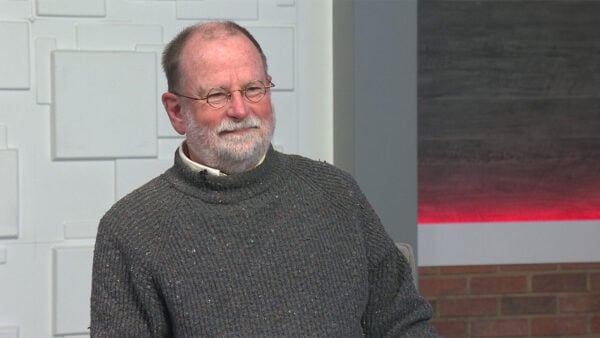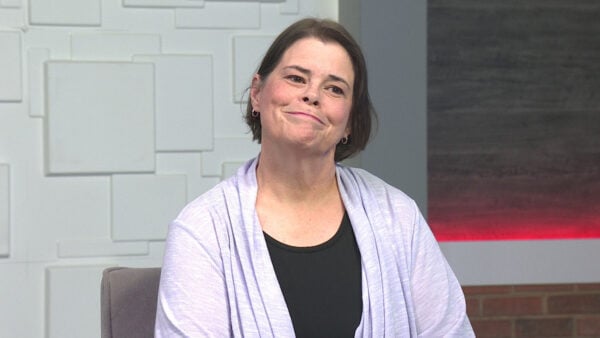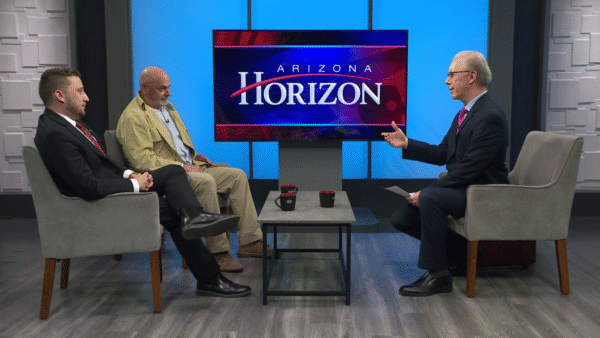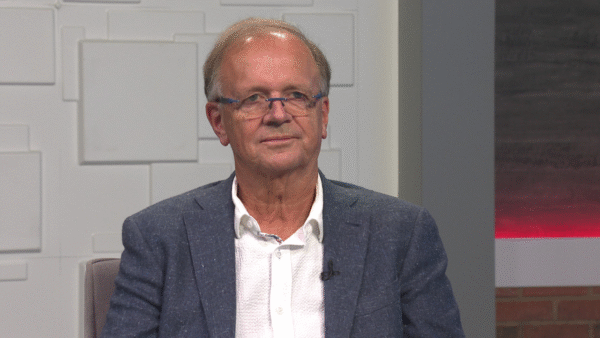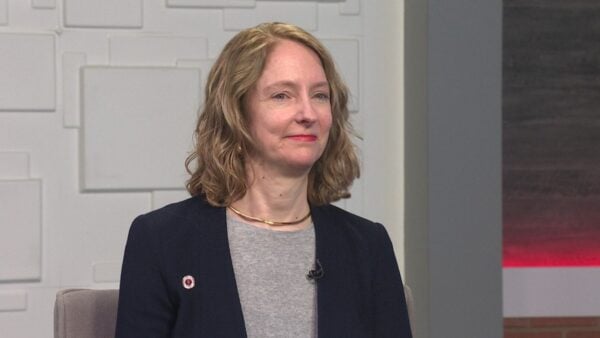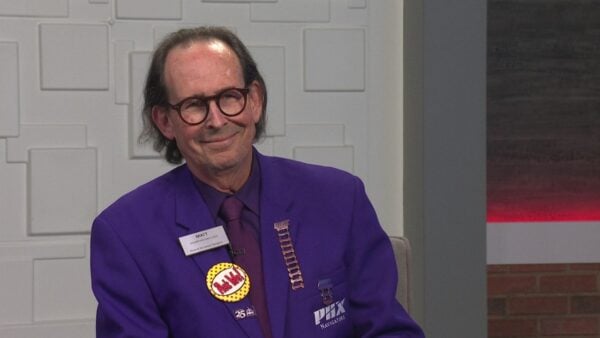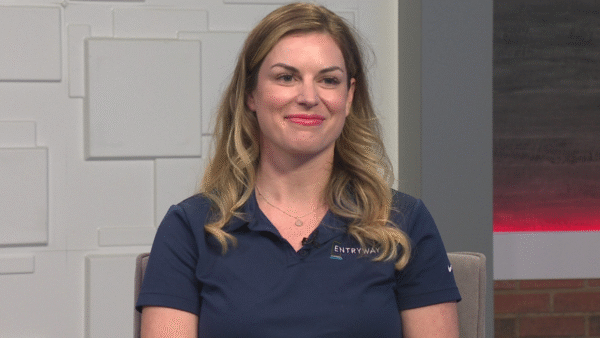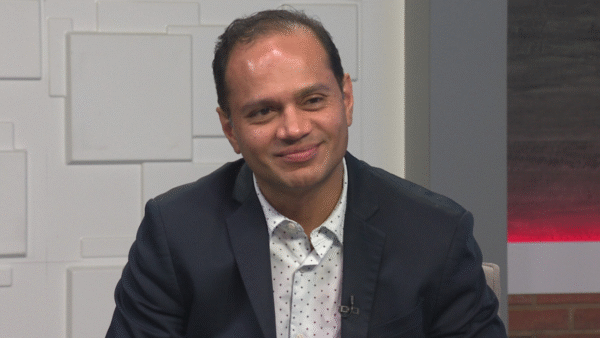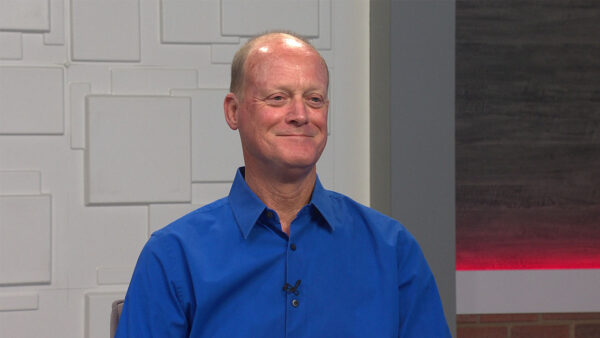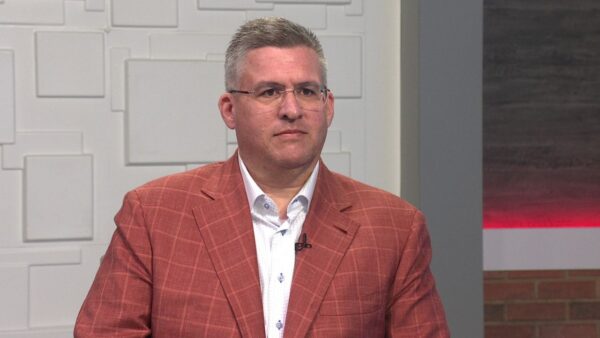Help is on the way for Arizona high school students who fail the AIMS test. The state board of education approved $10 million for tutoring. Superintendent of public instruction, Tom Horne will talk about that and other education issues.
Michael Grant:
Tonight on "HORIZON", help is on the way for Arizona high school students who fail the AIMS test. The state board of education approved $10 million for tutoring. Superintendent of public instruction, Tom Horne will talk about that and other education issues. Food and medical supplies are on the way for those who survived the earthquake and the Tsunami in Southeast Asia. But relief agencies and nonprofit are still asking for support in the aftermath of the worst natural disaster in the past century. We'll look at local efforts to help. Plus, researchers celebrate the one-year anniversary of the Mars Rover landing. We'll talk to an ASU scientist involved in the historic mission. I'm Michael Grant, welcome to "Horizon". Welcome to "HORIZON". In tonight's headlines, the 9th circuit court of appeals has been asked to stop Arizona's Prop 200 from being enforced. The Mexican-American Legal Defense and Education Fund filed an emergency motion asking the court to block portions of the law while it appeals an earlier ruling. MALDEF contends a Tucson federal judge was wrong when he concluded Prop 200 would withstand a constitutional challenge. Arizona's attorney general warning car dealers about deceptive advertising. Terry Goddard announced a $152,000 settlement with a Tucson auto dealer for a bait and switch tactic. Goddard says Precision Toyota's 50% off advertisement was false and misleading. Goddard warned his office will go after car dealers who don't spell out terms in radio and TV ads or use too small a print for disclaimers in newspaper ads. The state board of education approved $10 million to pay for tutoring for students needing help to pass the AIMS test. The funding comes, as some lawmakers will introduce legislation to get rid of the controversial graduation requirement. Joining me now to discuss the AIMS test and other issues faced education in Arizona is Tom Horne, superintendent of public instruction. Tom, happy New Year.
>> Tom Horne:
Nice to see you. About $270 per student, including homework, that's a lot of help. If it's tutoring, the teacher can focus on weaknesses, to help the student pass the test.
>> Michael Grant:
Are these local teachers who do the tutoring?
>> Tom Horne:
It will be done through the school district. There are private providers also available, so the parents and students can choose or if they're teachers from the schools, retired teachers, or from other schools, the principal has to certify the teacher is certified to tutor in.
>> Michael Grant:
You are in support of the AIMS test, why?
>> Tom Horne:
This requirement has been in the law, this year's juniors had to pass the test, they have known about it. I think the public wants to be sure that students with diplomas have the proficiencies that we expect of a high school graduate.
>> Michael Grant:
I think the counter argument to this, though, is that if you've got a failing school -- and I realize this is a package of accountability measures, but if you've got a failing school that failed to do the job right, why in the world do you punish the student?
>> Tom Horne:
Well, accountability is a two-sided coin, you have to hold the schools accountable but also the students. For the past several years we have held the schools accountable. The teachers, who might have financial consequences, they kind of have reverse leverage. If you want to have real accountability and real increase in academic performance, you hold both accountable.
>> Michael Grant:
Isn't there another path, why not start with failing students who don't perform? You're not going to move from 7th grade to 8th grade unless you meet the criteria?
>> Tom Horne:
I've been an opponent of social promotion for my 24 years, 26 years that I've been involved in education, 24 years on a school board and legislature and now state school superintendent, I've been opponent of social promotion. We may want to consider requirements like you can't get out of the third grade if you can't read, not out of the 8th grade if you can't do basic math. Right now I think we have enough controversy with our high school tests.
>> Michael Grant:
You're a supporter of all day kindergarten. It appears that the legislature will continue to implement -- on a 5 year.
>> Tom Horne:
CEO's will get to that without studies. The studies show academic readiness to be able to build on when they reach first grade, those students do better in the long run and it's an efficient way to increase academic performance. We're measuring it. I think part of my role is to be sure that the teachers of all day kindergarten are using that time for academic readiness rather than just being all day baby-sitting in which case it wouldn't do any good.
>> Michael Grant:
There are some concerns that maybe it is day care instead of education. Will a system be locked in place in terms of tracking performance?
>> Tom Horne:
We have started doing that. In those schools where we have special reading programs there's a measure of reading progress, and we have measured and found that students in all day kindergarten make better progress than students in half day kindergarten. We will continue to monitor that it is not day care.
>> Michael Grant:
You're going to stump the state with a state of the education speech. What key topics are you going to focus on?
>> Tom Horne:
This is my third annual state of education speech and I've established a tradition of two parts. The first is promises made, promises kept. I look at the promises I made the previous year and show what we did to keep the promises and the second stage is new initiatives for next year. We have spoken about better schools, better teachers and better curriculum. We have helped the schools, especially those doing poorly. I can give you statistics as to what we have done to keep the promise. The initiative is to go into state intervention in the schools that have not done well. Better teachers, we increase the number of highly qualified teachers in the state, and have begun a pilot program for people who have their bachelor's degrees and may want to make a mid life change, let's say an engineer who wants to teach math, they can enter the teaching profession without taking a couple years to go back to school. They are paid to be a teacher but are heavily mentored. We can greatly increase the number of teachers with good content knowledge in our schools. Better curriculum, we worked hard to show that we have a well-rounded curriculum. That we have history and social studies and science and arts and career technical education. I spent $4 million of the federal No Child Left Behind money on the arts.
>> Michael Grant:
How has that improved academic performance?
>> Tom Horne:
There's a study in Tucson, with and without an arts program. In the school that had the arts program, they scored higher. We were closing the gap in the schools that had the arts program and the schools that didn't. That gave me an academic reason to implement these in schools over the state. The federal government recognized that, sending a letter to other states saying don't say No Child Left Behind narrowed the arts program.
Michael Grant:
Tom Horne, superintendent of public instruction, drive or fly carefully.
>> Tom Horne:
Thank you. Good to see you.
>> Michael Grant:
More than 5 million people in southern Asia are believed to be without homes or food following last week's earthquake and Tsunami. In Sri Lanka, health officials have reported cases of cholera caused by contaminated water. Relief efforts are in full force, with some $2.5 billion pledged by countries and relief organizations. The $350 million given by the U.S. government may be dwarfed by private donations from U.S. citizens. As of today, hundreds of millions of dollars have been donated by Americans to help Tsunami victims. Joining me now to talk about local relief efforts is Tamera Skrovan, Chief marketing officer of the Grand Canyon chapter of the American Red Cross. Obviously, the Red Cross and a number of other agencies deal with disasters all the time, but in terms of its scope and its loss of life, I would think that this would be one of the most severe natural disasters, perhaps, that we have ever seen.
>> Tamera Skrovan:
I think you're right. Every disaster, you hear American Red Cross. Every disaster is terrible because people have lost so much. But because of the geographic reach of this and the tremendous loss of life as well as the entire communities, it makes it so much more dramatic and traumatic.
>> Michael Grant:
I have heard also for a variety of reasons, including, but not limited to, the damage to the local infrastructure it is making relief efforts particularly difficult.
>> Tamera Skrovan:
Absolutely. These areas and the geographical reach of this would be difficult to manage and service in the best of times and what we're looking at is definitely the worst of times. Not only the roads that are blocked or untravelable but also communications systems are down. Organizations like the American Red Cross are working diligently to make sure supplies get to where they're needed. It's taking longer than any of us would hope.
>> Michael Grant:
The short term focus, things like food, shelter, medical supplies?
>> Tamera Skrovan:
Absolutely. The American Red Cross just sent $30 million in an initial wave. As well as hygiene products, they need things like soap and other things to insure that they're living in cleanliness.
>> Michael Grant:
The best way to help? A cash donation?
>> Tamera Skrovan:
Absolutely. That allows us to get the aid there quickly. It allows the folks on the ground in those affected areas to purchase what is needed immediately, to purchase products that are culturally sensitive. We are dealing with several different countries and religions there and we want to make sure the products are right for the people affected. The economies in these areas have been decimated. By purchasing in areas close to the disaster helps stimulate those economies.
>> Michael Grant:
The logistics are a lot easier rather than shipping physically products from the United States?
>> Tamera Skrovan:
Absolutely. The cost and processing time attached to that is too tremendous for the immediate need there right now.
Michael Grant:
Outpouring of support from American citizens, I understand, has been overwhelming.
>> Tamera Skrovan:
It's been tremendous. Americans are so generous. To date, the American Red Cross has had over $92 million in pledges from the American public and foundations. We fielded hundreds of calls each day with Arizonans wanting to help.
>> Michael Grant:
A number of local businesses have stepped up?
>> Tamera Skrovan:
Absolutely. One is the Basha's family stores. They have 151 stores statewide. At any of those stores, you can add a donation to your grocery receipt and you'll get a receipt printed with the cash amount that you donated.
>> Michael Grant:
That's a cool system.
>> Tamera Skrovan:
Absolutely.
>> Michael Grant:
Very convenient. And you get the immediate receipt on the donation, as well.
>> Tamera Skrovan:
Absolutely. We want to make donating as simple as possible for Arizonans, and Basha's has really helped us do that. There are also several companies locally who are matching employee gifts. The Intel Foundation announced that it will be matching employee gifts to the disaster.
>> Michael Grant:
I understand the American Red Cross is on the job with our flooding.
>> Tamera Skrovan:
We have had our challenges here in the state. The rains have brought flooding to northern Arizona. In the past week we have opened several shelters to help folks. Our neighbors who have been evacuated from their homes. We opened a center in Gila County, helping get back on their feet.
>> Michael Grant:
Thank you very much for the information and for the effort.
>> Tamera Skrovan:
Thank you.
>> Michael Grant:
If you would like contact information for the American Red Cross visit the Channel 8 website at www. AZ PBS.ORG click on Horizon and tonight's date and you will find a list of relief agencies and contact information. This week marks the one-year anniversary of the landing of a NASA Rover on Mars. NASA sent two Rovers that were expected to work for three months, transmitting photos and data of surface rocks and minerals. The $850 million mission almost ended when the first of the two Rovers stopped working. The failures and successes of the Mars Rovers are profiled in tonight' Nova, seen at 8:00 on KAET. Here's a clip from Nova's "welcome to Mars."
>> Narrator:
Spacecraft have been visiting Mars for more than 30 years. From orbit they have seen ancient floodplains, dried up riverbeds and channels. Strong evidence that this now cold, dry planet was once bathed in liquid water, the essential ingredient of life. Recently, scientists have found life on earth in places they never thought possible before. Miles deep underground, beneath Antarctic ice, living on the chemical energy of sulfur instead of sunlight. Wherever they look, if there's liquid water, there's life. So if early Mars had water, perhaps it had life, as well. But so far, attempts to find it have failed. And so have attempts to find proof that Mars was really wet.
>> Michael Grant:
One of the scientists involved in the Mars Rover mission is ASU's Phil Christensen, regent's professor of geology. Phil sat down to talk about the mission and other current events topics involving NASA.
>>> Michael Grant:
You know what's remarkable is Opportunity and Spirit are still running one year later.
>> Phil Christensen:
Absolutely. They thought they would run three months, it's been 12. People are astounded. They are certainly happy, but they're surprised.
>> Michael Grant:
You said one is in the process of climbing a hill about as high as south mountain.
>> Phil Christensen:
The intent is to go places. The beautiful thing about hills is there's a lot of rock so we're examining the rocks. Part of it is trying to get to the top of this big hill and just look around. Even with robots, humans have the desire to climb to the top of the hill and see what you can see and we're doing that with the robots.
>> Michael Grant:
It was one year ago that opportunity and spirit dropped on Mars. Remind us again of the mission.
>> Phil Christensen:
There are two rovers. We went to two different places, opposite sides of the planet. The basic idea was to look for places where there might have been water in the past. Spirit landed in a big crater that has a large ancient river that looks like it flowed in, the idea a dried up lake. The other landed on a surface covered with a mineral that we thought formed in water, actually some work done at ASU. It turned out the lake wasn't, but the mineral that formed in water was. It really was a lake.
>> Michael Grant:
Are you firm now that there's water on Mars?
>> Phil Christensen:
Absolutely. There's water there today in the form of ice but there was definitely water at this site. We found the minerals that formed in water, we found evidence of in the rock of ripples of sand ripples suggesting a current moving back and forth in water. We are 100% confident that there was standing water, a lake at that place.
>> Michael Grant:
In the significance of that, is it this simple, where there's water there is more likely than not life?
>> Phil Christensen:
Absolutely. Where there's water there could be life. Interesting thing is, biologists argue about what would be the test for life but everyone agrees that any form of life probably needs water. Water is a catalyst, it makes life possible. We have been looking for places with water. The other important thing, there is evidence of huge floods. Massive floods. The short amount of time, that's not enough to help but a standing lake that may have been there for thousands of years, now you can start to seriously talk about life could have started in that lake.
>> Michael Grant:
Obviously, the current conditions on Mars are not real hospitable. Do we start drawing conclusions like at some point Mars may have shifted in its orbit?
>> Phil Christensen:
Probably not in its orbit around the sun but possibly in the tilt of its orbit. On the earth, our orbit, the angle changes a little bit and we think that's enough to cause ice ages. On Mars that change is dramatic and it probably has produced tremendous changes in the climate. There seems to be a significant shift from early Mars that looks like it had these lakes and quite a bit of water to current Mars which is cold and frozen. We don't know what changed. One of the things that Mars lost is a huge fraction of its atmosphere, so the atmosphere got thin, temperatures plummeted. We're looking at those types of possibilities.
>> Michael Grant:
Obviously, we're talking millions and billions of years here.
>> Phil Christensen:
Probably two billion years ago is when this water was there.
>> Michael Grant:
Opportunity and Spirit didn't get off on the right foot. There were some early problems, but they were able to restart, reboot, regain control.
>> Phil Christensen:
Absolutely. There have been a few little glitches along the way, but something this complicated it's not surprising. Think it's a testament to the engineers that built these, from 200 million miles away, you can figure out what's wrong, fix it and off they go again.
>> Michael Grant:
I find it remarkable you can drive it 16 minutes away by communication. I'm easily astonished.
>> Phil Christensen:
We're surprised, too.
>> Michael Grant:
You don't buy the methane on Mars.
>> Phil Christensen:
It's there and it could only come from life because life, even primitive life, gives on methane. That's a huge finding. If that were true, it might be one of the most important findings we have made in 100 years. The observations are very sketchy. They are right at the edge of what you might believe. I confess I'm a skeptic at the moment.
>> Michael Grant:
Methane is not necessarily tied to life.
>> Phil Christensen:
That's true. Even rocks, cooling lava, as that cools it can give off methane. There are other sources of methane besides life. Even if there's methane, some scientists are jumping immediately to the conclusion of life and I think there's a lot of other steps along the way.
>> Michael Grant:
The NASA administrator Sean O'Keefe resigned.
>> Phil Christensen:
He has done a good job of leading NASA out of a budget crisis into stability. The budget was in disarray when he took over; he stabilized, worked with Congress. He is leaving at a very complex time. The shuttle is not flying again; the robotic missions are still up in the air. President Bush made this announced awhile back that we are going to send humans back to the moon. Those are a lot of balls to have in the air and the change in the administration level is a challenge.
>> Michael Grant:
In fact, President Bush talked about not only moon missions manned but manned Mars's missions. Those are expensive. Does that get done at the expense of these kinds of missions?
>> Phil Christensen:
You can send 100 robots to mars for the price of one human mission. I want to see humans go to Mars. Humans could do wonderful things there, but we cannot allow the robotic missions that have been so successful to stop, all of that money get siphoned to the human mission. We need to maintain the balance. The concern is anything goes wrong on the human side, you start looking around for money, well, we'll take all the money you can and put it to solve those problems. I want to remain optimistic and hope that won't happen.
>> Michael Grant:
Phil, an absolutely incredible year and incredible mission. Congratulations and thanks for joining us.
>> Phil Christensen:
You're very welcome.
>> Michael Grant:
"Nova- Welcome to Mars" airs tonight on Channel 8.
>> Merry Lucero:
Storms prompted a release from the Verde reservoir system. Our drought outlook had been bleak. What are forecasters seeing in the weather patterns for this winter? The impact of the rain and drought on our reservoir system Wednesday on "HORIZON."
>> Michael Grant:
Also on Wednesday, newly elected Maricopa County attorney Andrew Thomas will join me to talk about his priorities as the county's top law enforcement official. Governor Janet Napolitano joins me Thursday for her monthly interview. I'll ask her about the recent rainfall and flooding. Thank you very much for being here on this Tuesday. I'm Michael Grant. Have a good one. Good night.
Tom Horne:Superintendent of Public Instruction; Tamera Skrovan:Chief Marketing Officer, Grand Canyon chapter, American Red Cross; Phil Christensen:Regent's Professor of Geology; Arizona State University;










